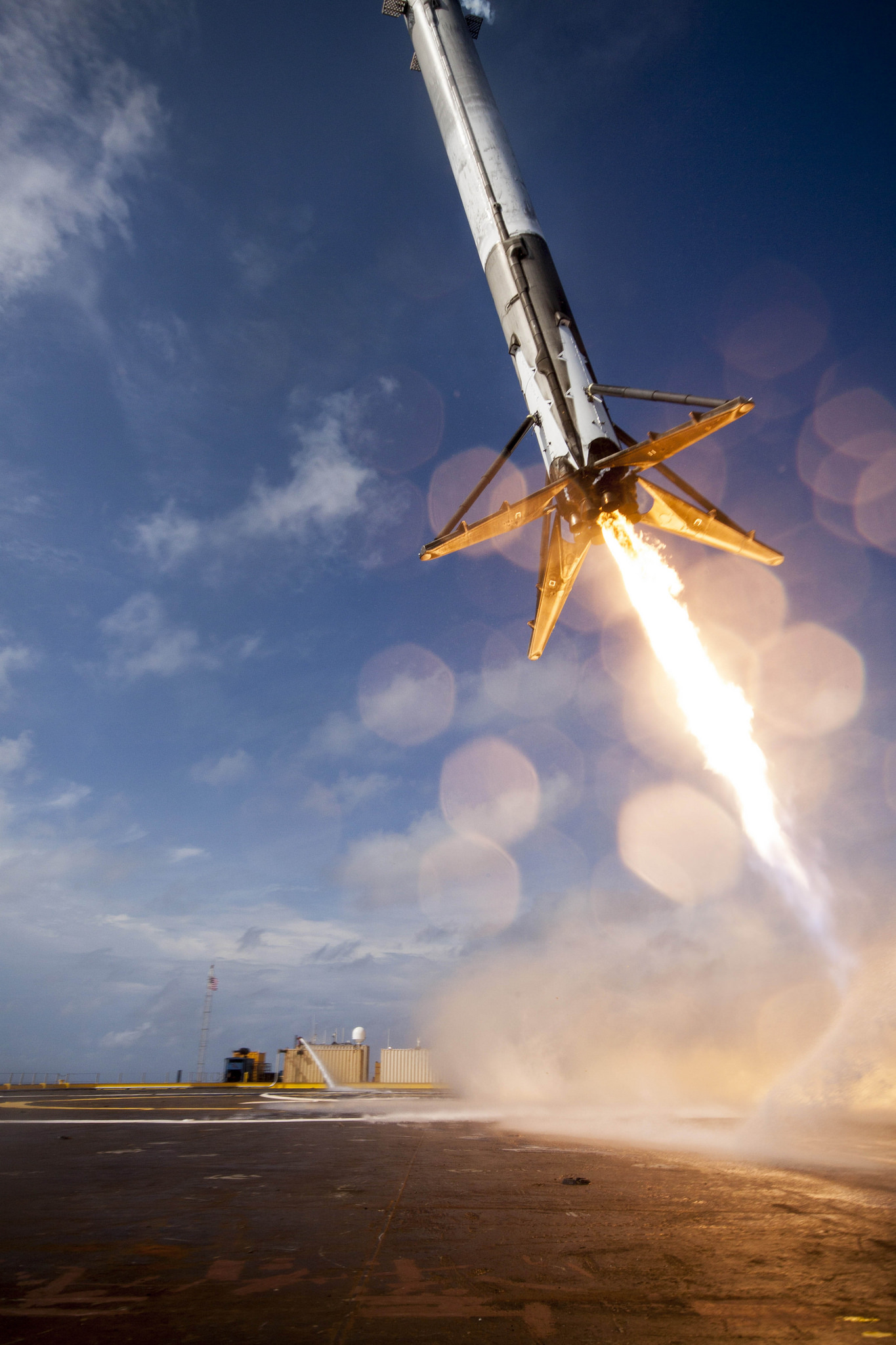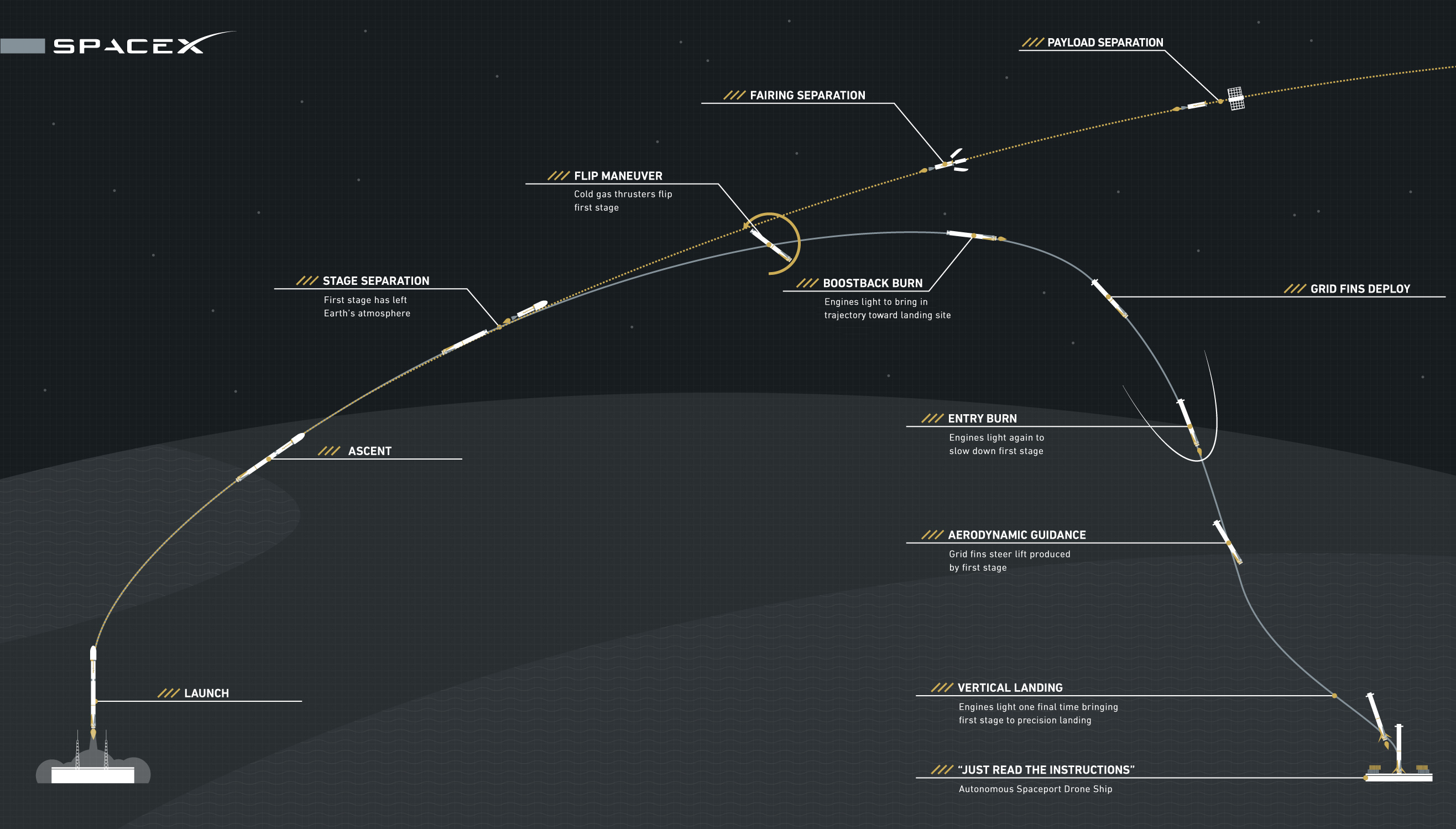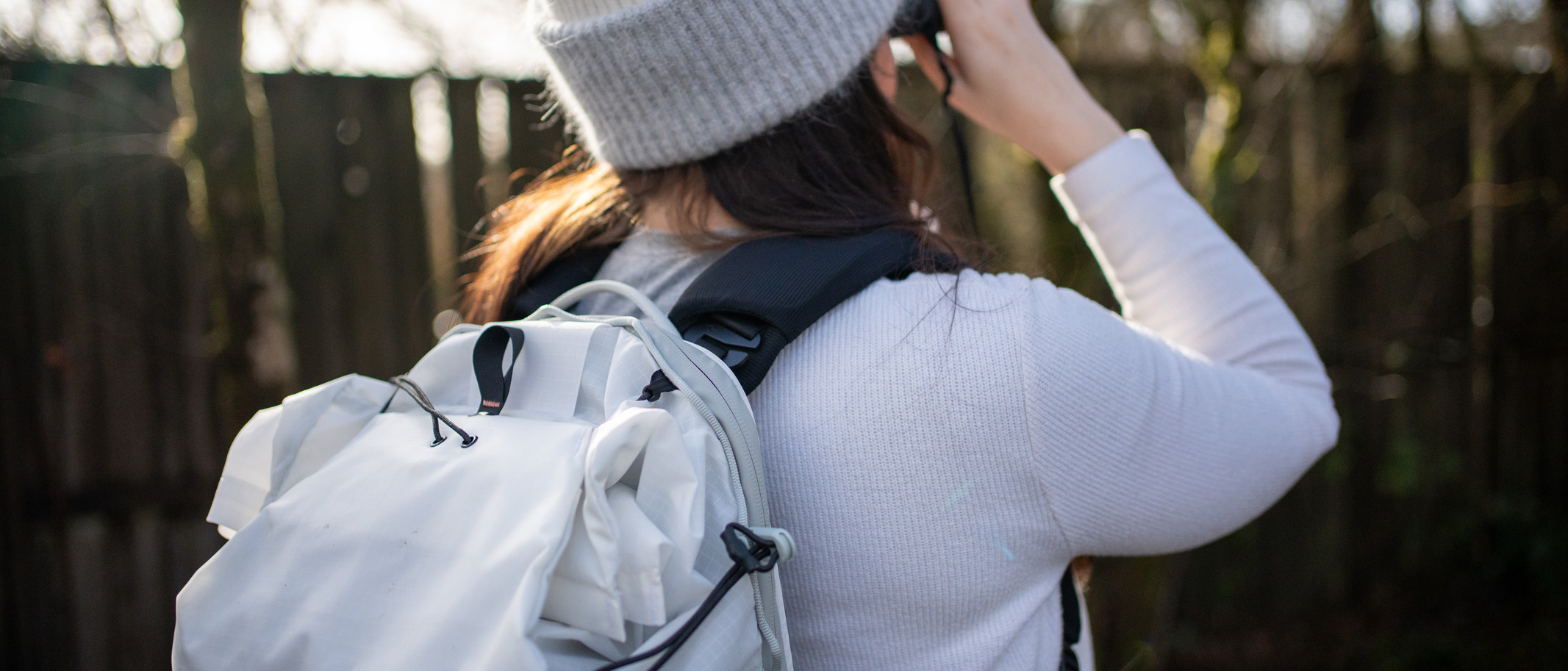SpaceX to Try Bold Rocket Landing Again Sunday: Watch Live

SpaceX will try once again, on Sunday, to land the first stage of its Falcon 9 rocket on a boat, and you can watch all the dramatic spaceflight action live.
The daring maneuver will take place during the launch of the company's robotic Dragon cargo capsule toward the International Space Station for NASA. Liftoff is scheduled for 10:21 a.m. EDT (1421 GMT) Sunday (June 28) from Florida's Cape Canaveral Air Force Station; you can watch live here at Space.com, beginning at 9 a.m. EDT (1300 GMT), courtesy of NASA TV. (You can also watch via SpaceX's webcast.)
Shortly after launch, the Falcon 9's first stage will separate and perform several engine burns, in an attempt to touch down softly on a SpaceX "autonomous spaceport drone ship," which will be stationed in the Atlantic Ocean. [Inside SpaceX's Epic Rocket-Landing Test (Infographic)]
SpaceX has attempted this move twice before, during Dragon cargo launches in January and April. Both of these previous tries were tantalizing near misses: The rocket stage succeeded in hitting the boat but ended up crashing and exploding.
The January try failed because the rocket stage ran out of hydraulic fluid for its stabilizing "grid fins," while April's "hard landing" resulted from a valve problem, SpaceX representatives have said. Engineers addressed both issues, representatives added, but success on Sunday is still far from assured.
Incidentally, whereas the previous two attempts involved a drone ship called "Just Read the Instructions" Sunday's will employ a new one called "Of Course I Still Love You."
The goal of these tests is to help develop fully and rapidly reusable rockets, which SpaceX founder and CEO Elon Musk has said could slash the cost of spaceflight dramatically.
Breaking space news, the latest updates on rocket launches, skywatching events and more!
"Think about it: We don't throw away an airplane after a one-way trip from LA to New York," SpaceX representatives wroteThursday (June 25) about the company's reusable-rocket plans.
"Each new plane costs about the same as one of our Falcon 9 rockets, but takes off and lands many times per day and is likely to conduct tens of thousands of flights over its lifetime," the representatives added. "Yet when it comes to space travel, rockets fly only once — even though the rocket itself represents the majority of launch cost."
But for all the fanfare and drama, the rocket-landing test is a secondary objective on Sunday. The main goal is to send Dragon safely on its way to the space station. The capsule is loaded up with more than 4,000 lbs. (1,814 kilograms) of food, supplies and scientific gear, including a meteor-observing experiment.
SpaceX holds a $1.6 billion NASA contract to fly at least 12 unmanned cargo missions to the space station. Sunday's launch will kick off the seventh such flight.
If Dragon gets off the ground as planned on Sunday — and the weather looks like it should cooperate, with a 90 percent chance of good conditions as of Thursday evening — the capsule will arrive at the station on Tuesday morning (June 30), NASA officials said.
Follow Mike Wall on Twitter @michaeldwall and Google+. Follow us @Spacedotcom, Facebook or Google+. Originally published on Space.com.

Michael Wall is a Senior Space Writer with Space.com and joined the team in 2010. He primarily covers exoplanets, spaceflight and military space, but has been known to dabble in the space art beat. His book about the search for alien life, "Out There," was published on Nov. 13, 2018. Before becoming a science writer, Michael worked as a herpetologist and wildlife biologist. He has a Ph.D. in evolutionary biology from the University of Sydney, Australia, a bachelor's degree from the University of Arizona, and a graduate certificate in science writing from the University of California, Santa Cruz. To find out what his latest project is, you can follow Michael on Twitter.

